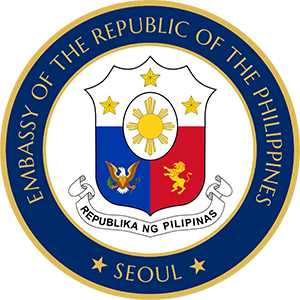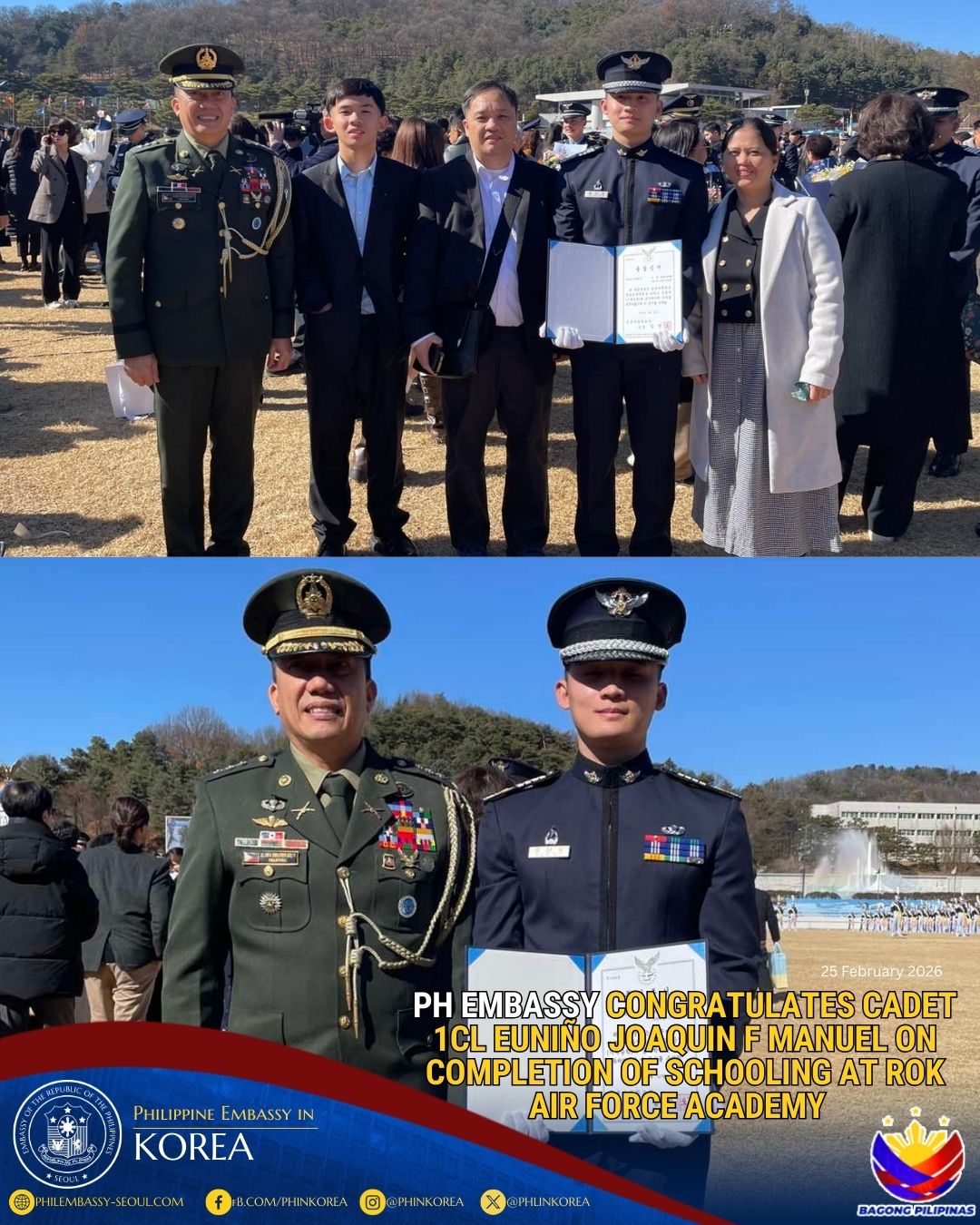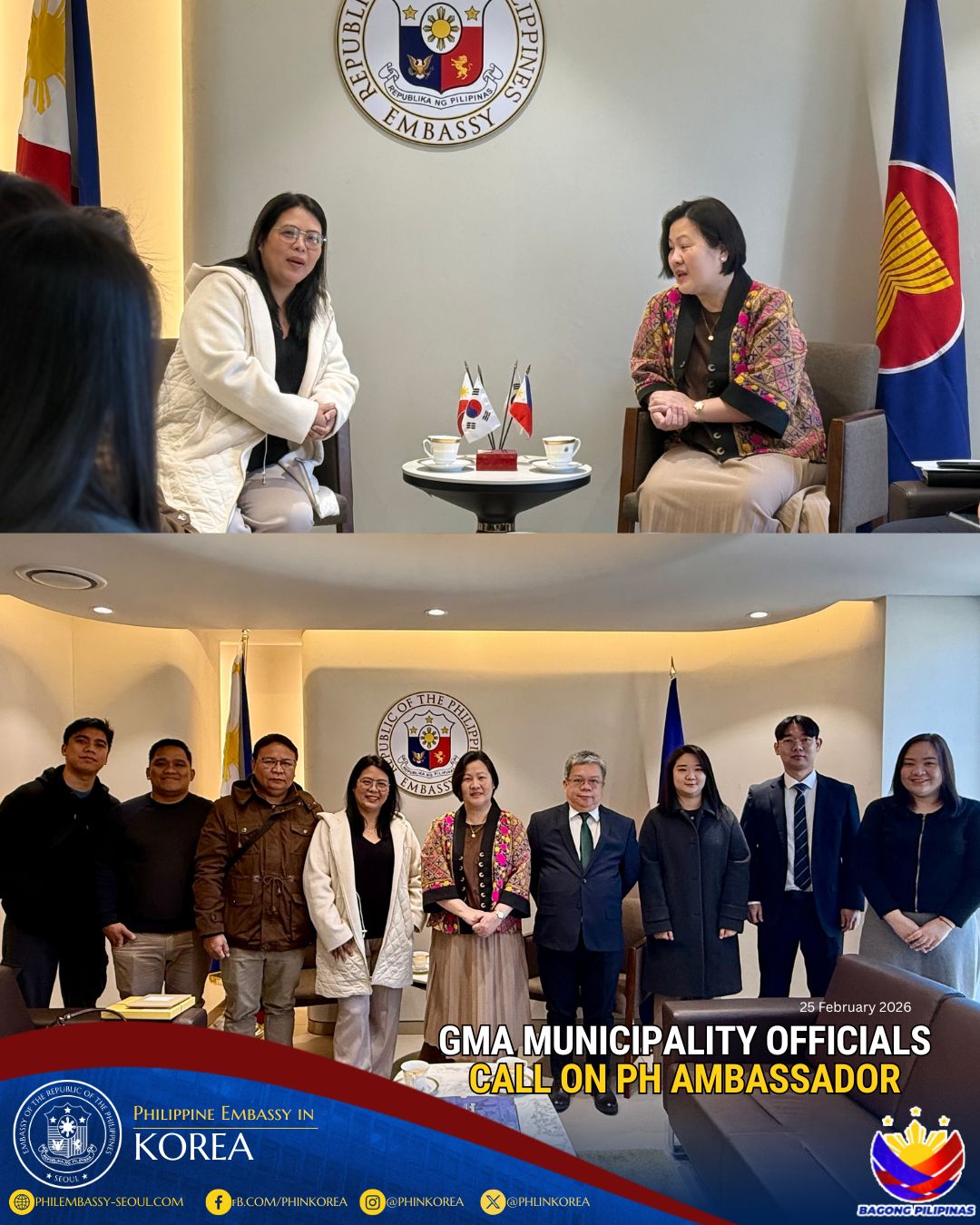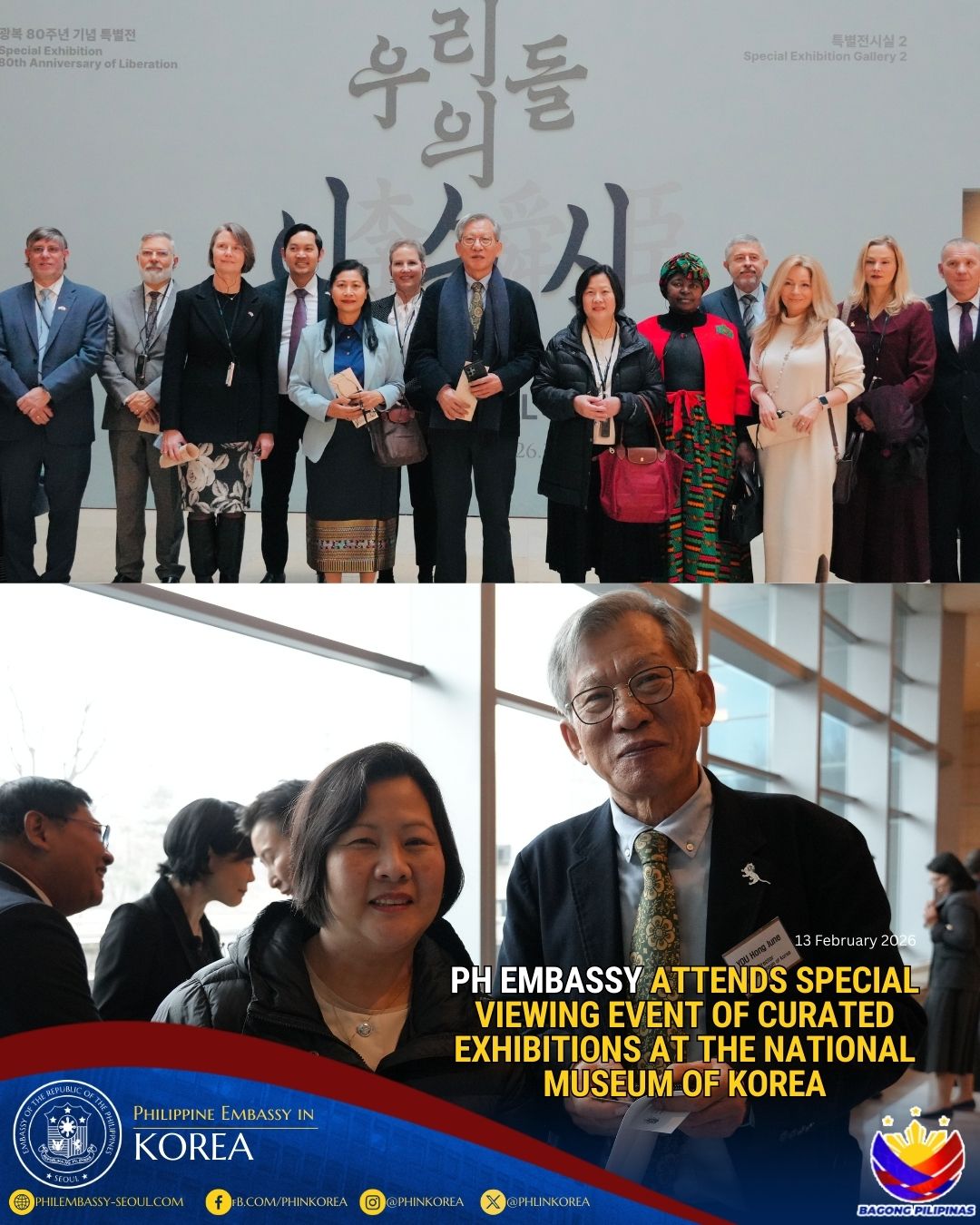SPEECH OF SECRETARY IMELDA M. NICOLAS, Chairperson of the Commission on Filipinos Overseas (CFO), Office of the President, “MOU Signing between the Ministry of Gender Equality and Family (MOGEF) and the Commission on Filipinos Overseas (CFO)â€
Minister Kim Kum Lae of the Ministry of Gender Equality and Family, Charge d’affaires Sylvia Marasigan of the Philippine Embassy, Director Insook Kang, other officials and staff from the Ministry and the Embassy, leaders of the Philippine community in Korea, Warm greetings from the Philippines!
We would like to thank the Government of Korea through the Ministry of Gender Equality and Family for inviting us today for the signing of this historic “Memorandum of Understanding on Cooperation in Developing Capacities for the Resettlement and Adaptation of Filipino Marriage Immigrants and Promoting the Empowerment of Marriage Immigrantsâ€.I have visited Korea many times before, but yesterday, as I arrived from Manila, I realized that what made Incheon International Airport beautiful was not only its architecture and modernity – but also the fact that one is never too far away from an entertaining, enlightening or amusing bit of Korean culture – from Korean craft workshops to artists dressed-up in traditional clothing, from plants and flowers indigenous to Korea to K-Pop icons – all welcoming the newly arrived in a burst of culture melding with technology.
And I wondered if that is the same feeling that marriage migrants get as soon as they step into Korean soil and into their new roles as wives, in-laws, mothers and migrants.
I could imagine our Filipino women arriving at the airport with awe and wonder in their hearts, which for some of them could unfortunately give way to insecurity, alienation, and sometimes desperation.
Please picture in your mind’s eyes, Filipino spouses, mostly women, from 18-25 years old, married to Korean men, mostly 35 and up.
They are faced with the inherent problem of differences in age, culture and language. And more often than not, they have to contend with the prejudices of others towards “foreignersâ€. Needless to say, this makes the path to integration a difficult one.
Learning from our past experiences in dealing with the Filipino partners of Taiwanese nationals in the early 1990s and later on, Filipinas married to Japanese nationals in the late 1990s to early 2000, the Commission on Filipinos Overseas saw the need to conduct a two-day cultural orientation seminar to Filipinos married to Korean nationals, to prepare them for integration into Korean society. In this seminar, we discuss, in detail, culture, language, tradition and values among Korean families.
By 2008, we have opened our doors to agencies as diverse as the Korean Volunteers Association (KOVA), Korea Center for United Nations Human Rights Policy (or KoCUN), the Korean embassy in Manila and of course, the Ministry of Gender Equality and Family. They helped us improve our counseling modules and set up measures to protect potential victims of illegal recruitment and human trafficking.
And today, we formalize, strengthen and institutionalize this partnership as we sign this Memorandum of Understanding.
Both the governments of the Philippines and Korea see the integration of Filipino marriage migrants as a way to ensure the protection of their human rights and to support their empowerment.
We realize that the less they adapt into Korean life, the less empowered they become. And this needs to be addressed comprehensively and creatively.
This agreement demonstrates the strong partnership between our nations and emphasizes our joint commitment to face this challenge.
For this, we thank Minister Kim Kum Lae through Director Kang and Ambassador Luis Cruz through Consul General Marasigan who are at the frontlines responding to the varied concerns of partners in intermarriages.
We salute them as they and their respective staff serve as counselors, immigration and sometimes legal advisers to marriage migrants.
By developing new ways of providing information through on-site multi-cultural orientation and language programs, we hope to build the right attitude of both women and men in intermarriages and more effectively confront issues related to domestic violence and human trafficking.
By sharing information and resources on policies that affect the rights of women migrants and their children, we are building a common understanding - a shared notion of how multicultural families in Korea, in the Philippines and elsewhere can survive and better thrive in a world that is increasingly without borders.
Today, we worry about the women in intermarriages, but even now, we should also pay attention to the situation of their children – the KOPINOs who have grown in number, not just in Korea, but also in the Philippines.
Our message should always be clear – women…….and men (yes, let us not forget the men) in Filipino-Korean marriages need to use more energy and imagination to balance and celebrate two cultures. They must be strong enough to endure the stares, tough enough to keep working at their differences and confident enough to raise children who would be proud of their Filipino-Korean heritage.
That is the only way that we can move forward and make a difference with this Memorandum of Understanding. That is the only way that women migrants can be given more options -- to be family centered, economically productive and sure of their place in the sun, as they immerse themselves in Korean culture beyond the burst that welcomes them as they arrive at the airport.
Thank you very much to all our partners. It is most fitting that we sign this MOU on Women’s month – for all the women in Korea, the Philippines, the world – Mabuhay!



 March 03, 2026
March 03, 2026
 February 27, 2026
February 27, 2026
 February 27, 2026
February 27, 2026
